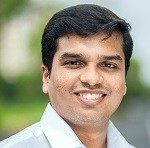About the Editors
Editor-in-Chief
 Joseph C. Kvedar, MD
Joseph C. Kvedar, MD
Harvard Medical School
Mass General Brigham
Boston, USA
At Mass General Brigham (Partners HealthCare), Dr. Joe Kvedar has focused on driving innovation, creating the market, and gaining acceptance for telehealth for nearly three decades. He is now applying his expertise, insights, and influence to advance the adoption of telehealth and virtual care technologies at the national level. Dr. Kvedar is Professor of Dermatology at Harvard Medical School and President of the American Telemedicine Association (ATA). He is co-chair the American Medical Association's (AMA) Digital Medicine Payment Advisory Group (DMPAG), which works to ensure widespread coverage of telehealth and remote patient monitoring, and successfully established several new provider codes for telehealth reimbursement through the CPT process. Dr. Kvedar is also a member of the AAMC’s (Association of American Medical Colleges) telehealth committee, creating tools that will enable medical schools and residency programs to integrate telehealth into the training of future practitioners. He is the author of two books on digital health: The Internet of Healthy Things and The New Mobile Age: How Technology Will Extend the Healthspan and Optimize the Lifespan.
Managing Editor
Tony Chen, PhD.
Tony earned his PhD in Cell and Developmental Biology from Vanderbilt University and did postdoctoral work at the NIH studying the molecular mechanisms of Head and Neck cancer. He then moved into scholarly publishing and managed a portfolio of Health Sciences titles at Wiley for over 5 years.
Deputy Editors
 Daniel C. Baumgart, MD, PhD
Daniel C. Baumgart, MD, PhD
University Professor, College of Health Sciences and College of Natural and Applied Sciences
University of Alberta
Edmonton, Alberta, Canada
Professor Daniel C. Baumgart, MD PhD MBA went to medical school in Berlin (Germany), Basel (Switzerland) and Würzburg (Bavaria). He received his training at Charité Medical School (Humboldt-University of Berlin), at the University of Pennsylvania, Philadelphia, PA, Georgetown University, Washington, DC, and the National Institutes of Health (NIH) Bethesda, MD, USA. An internationally recognized inflammatory bowel disease (IBD) expert and trailblazer of digital innovation, he has a strong interest in digital health, artificial intelligence (AI) and decision support to enable precision health. He is the principal investigator and program director of the "From Data to Decision (FD2D) - Digital Transformation and Artificial Intelligence from Data Value Chain to Human Value" Collaborative Research and Training Experience (CREATE) program launched in 2022 that unites a multidisciplinary group of researchers and innovators at 22 leading academic institutions and technology companies in North America, Europe and Asia, that develop and study digital transformation and artificial intelligence applications across various academic disciplines and industrial sectors as well as their impact on society, funded by the Natural Sciences and Engineering Research Council of Canada (NSERC), Mathematics of Information Technology and Complex Systems (Mitacs) and the University of Alberta, Edmonton, Canada.
 Daniel Capurro, MD, PhD
Daniel Capurro, MD, PhD
School of Computing and Information Systems, Centre for the Digital Transformation of Health, University of Melbourne
Melbourne, Australia
Daniel Capurro is a General Internist and biomedical informatics researcher, currently Deputy Director of the Centre for the Digital Transformation of Health at the University of Melbourne. His research focuses on applying data science to solving complex clinical problems such as overdiagnosis and clinical variability. His methods include process mining and applied machine learning. Daniel completed his MD and Internal Medicine residency training at Pontificia Universidad Catolica de Chile and obtained a Phd in Biomedical and Health Informatics from the University of Washington, USA.
 Adam Dunn, PhD
Adam Dunn, PhD
Professor of Biomedical Informatics, Faculty of Medicine and Health
The University of Sydney
Sydney, NSW, Australia
Adam Dunn is a Professor of Biomedical Informatics in the Faculty of Medicine and Health at The University of Sydney. He has more than 15 years of experience working across most research areas in biomedical informatics, but specialises in applications of machine learning and natural language processing. He has also published in public health in areas related to misinformation and vaccination, and in meta-research in areas related to conflicts of interest and biases in clinical trials and systematic reviews.
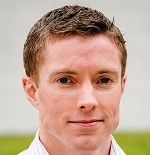 Alan Godfrey, PhD
Alan Godfrey, PhD
Northumbria University
Newcastle upon Tyne, UK
Alan is an Associate Professor and head of the Digital Health and Wellbeing research group in the Department of Computer and Information Sciences, Northumbria University (UK). His major research is in algorithms for data science and analytics in healthcare. This includes areas of artificial intelligence, machine learning, data mining and multidimensional signal processing. His has specific interests in inertial sensor-based wearable technology to examine human movement, such as gait analysis. He is a senior member of the Institute of Electrical and Electronics Engineers (IEEE) and member of the Institute of Engineering and Technology (MIET).
Associate Editors
 Grayson W Armstrong, MD, PhD
Grayson W Armstrong, MD, PhD
Instructor, Department of Ophthalmology
Massachusetts Eye & Ear / Harvard Medical School
Boston, MA, USA
Grayson W. Armstrong, MD, MPH is an ophthalmologist and researcher at Massachusetts Eye & Ear of Harvard Medical School, where he serves as the Director of Ophthalmic Emergency Services and Associate Director of Ophthalmic Medical Student Education. Dr Armstrong's research interests include ophthalmic telemedicine, artificial intelligence, and the creation and validation of novel medical devices. He is also interested in programmatic implementation of public health screening measures, ophthalmic trauma, and medical education. Dr Armstrong is active in health policy, advocacy, and organized medicine.
 Nils Fischer, MPH
Nils Fischer, MPH
ZS Associates
New York, NY, USA
Nils currently works as a life science consultant with a focus on delivering health economic outcomes research to support the commercialization of health technologies. Prior to that he spent several years at the Mass General Hospital performing outcomes research on wearables and smartphone tools applied to clinical settings. His interests include the validation and economic evaluation of digital technologies to understand their impact on patients, physicians, and health systems.
 Karice Hyun, PhD, MAppStat, BSc
Karice Hyun, PhD, MAppStat, BSc
Faculty of Medicine and Health, University of Sydney; Cardiology Department, Concord Hospital, ANZAC Research Institute
Sydney, Australia
Karice Hyun is a Biostatistician and a Senior Research Fellow. As a Biostatistician , she works on national linked data projects, projects involving primary care medical record extracts, major national and international cardiovascular health trials and registries. As a Research Fellow, her work informs health delivery and aims to improve primary and secondary prevention of chronic disease through translational research.
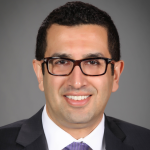 Roozbeh Jafari, PhD
Roozbeh Jafari, PhD
Massachusetts Institute of Technology
MA, USA
Roozbeh Jafari received his Ph.D. in Computer Science from UCLA and completed a postdoctoral fellowship at UC Berkeley. His research interest lies in wearable computer design and signal processing. He was the inaugural chair of chair of the NIH Clinical Informatics and Digital Health (CIDH) study section (2020-2022) and is a Fellow of the American Institute for Medical and Biological Engineering (AIMBE).
Sujay Kakarmath, MBBS, MS
Google LLC
USA
Dr. Sujay Kakarmath is a physician and epidemiologist leading innovation and development in digital health. Presently, Dr. Kakarmath spearheads research and development efforts at Google, focused on the application of AI to health. Before joining Google, Dr. Kakarmath led the development of Clinical AI products within Radiology and Cardiology at Mass General Brigham. Earlier in his career, he led the data science team at Partners Connected Health Innovation, where his research focused on evaluating digital health solutions designed to improve population health outcomes for heart failure and epilepsy patients.
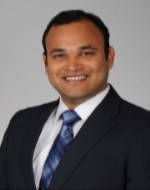
Deepak Kumar, PT, PhD
Assistant Professor, Department of Physical Therapy, Boston University
Department of Physical Therapy, Boston University; Section of Rheumatology, Boston University Chobanian & Avedisian School of Medicine
Boston, MA, USA
Dr. Kumar is a clinician-scientist at Boston University. His research is to develop mechanism-informed and technology-enabled movement interventions for people with chronic knee pain that are effective, equitable, and scalable. His work intersects rehabilitation, biomechanics, digital health, artificial intelligence, and pain neuroscience. Dr. Kumar has over 50 publications and his research has been funded by federal, foundation, and industry sponsors.
Yuan Luo, PhD
Feinberg School of Medicine, Northwestern University
Chicago, IL, USA
Dr. Luo is Associate Professor in the Department of Preventive Medicine, and Chief AI Officer at the Northwestern University Clinical and Translational Sciences Institute (NUCATS) and at the Institute of Augmented Intelligence in Medicine (IAIM). Dr. Luo’s research interests include machine learning, natural language processing, time series analysis, multi-omic analysis and medical imaging, with a focus on integrating these directions in the framework of multi-modal machine learning for health care.
 Heather G Lyu, MD, MBI
Heather G Lyu, MD, MBI
Assistant Professor
Department of Surgical Oncology
The University of Texas MD Anderson Cancer Center
Houston, TX
Dr. Lyu is an Assistant Professor in the Sarcoma Section, Department of Surgical Oncology at The University of Texas MD Anderson Cancer Center. Dr. Lyu’s research centers on the augmentation of real world data collection from Electronic Health Records (EHR) and the integration of Natural Language Processing (NLP) and machine learning. She currently focuses on the refinement and structuring of clinical narratives to enable efficient and accurate data collection. She also studies how the incorporation of NLP and machine learning capabilities can allow for more intricate data capture from unstructured clinical text and the development of predictive models and algorithms.
 Thomas McCoy, MD
Thomas McCoy, MD
Massachusetts General Hospital
MA, USA
Thomas McCoy is a physician-scientist focused on secondary use of data generated through routine care for clinical prediction and risk stratification. His research program is rooted in the acute care setting and efforts to use natural language processing applied to clinician-authored documentation as a means of quantifying poorly coded phenotypes. He leads the data platform at the Mass General Hospital (MGH) Center for Innovation and Digital Healthcare (CIDH).
 Evan D. Muse, MD, PhD, MCTI
Evan D. Muse, MD, PhD, MCTI
Scripps Research Translational Institute
CA, USA
Evan D. Muse is a physician-scientist with research interests that mine the transition zone of digital medicine, genomics and cardiovascular disease. In addition to his clinical practice, he conducts research exploring the crosstalk of lipid and inflammatory networks in macrophage, with the goal of identifying new therapies for the prevention and treatment of atherosclerotic heart disease (atherosclerosis). He also conducts clinical trials in the genomics of cardiovascular diseases, including atrial fibrillation and heart attack.
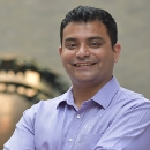 Girish Nadkarni, MD
Girish Nadkarni, MD
System Chief, Division of Data Driven and Digital Medicine and Director, The Charles Bronfman Institute of Personalized Medicine
Icahn School of Medicine at Mount Sinai
New York, NY, USA
Dr. Nadkarni is the System Chief, Division of Data Driven and Digital Medicine and Director, The Charles Bronfman Institute of Personalized Medicine at the Icahn School of Medicine at Mount SInai. As both a physician and an informaticist he is an expert in health AI, biomedical informatics and digital health. He works with a large team of computer and data scientists, clinicians and informaticists to improve patient outcomes and create learning health systems.
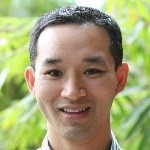 Anthony Nguyen, PhD
Anthony Nguyen, PhD
Research Team Leader
The Australian e-Health Research Centre, CSIRO
Brisbane, QLD, Australia
Anthony Nguyen is a Research Team Leader and Principal Research Scientist from the Australian e-Health Research Centre (AEHRC), CSIRO’s e-Health research program within the Health and Biosecurity business unit. He leads the Health Data and Text Analytics team within the Health Informatics group to build a clinically focused natural language processing (NLP) research program and deliver innovative software solutions for automating the analysis of unstructured, narrative medical records. His team develops and applies advanced artificial intelligence (AI) techniques to analyse clinical data and text for the purpose of creating value via interoperability, decision support & reporting across all healthcare sectors. Techniques include the combination of text mining, statistical machine learning and information retrieval with clinical terminology (SNOMED CT) semantics to enhance clinical natural language understanding. In partnership with healthcare providers, he creates value from health data to deliver improved patient outcomes, health system performance and productivity.
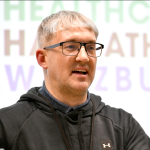 Rüdiger Pryss, PhD
Rüdiger Pryss, PhD
Professor, Institute of Clinical Epidemiology and Biometry
University of Würzburg
Würzburg, Germany
Rüdiger Pryss is Professor of Medical Informatics at the Department of Clinical Epidemiology and Biometry at the University of Würzburg. He is a computer scientist and has been active in research at the interfaces between medicine, psychology and computer science for over 10 years. Main research interests are digital medicine, mobile computing, medical data engineering, AI in medicine and medical informatics expert systems. In these areas, he has already developed over 20 digital applications that are used in different types of studies on various entities in medicine and psychology.
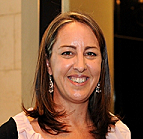 Julie Redfern, PhD
Julie Redfern, PhD
Westmead Applied Research Centre
Faculty of Medicine and Health, University of Sydney
Sydney, Australia
Julie Redfern is a Professor of Public Health and a clinical physiotherapist. She has led clinical trials and epidemiology studies focussed on secondary prevention along with co-design, testing and implementation of digital health interventions. She is the current Academic Leader (Researcher Development) in the Faculty of Medicine and Health, University of Sydney, co-Chair of the Exercise, Prevention and Rehabilitation Council of the Cardiac Society of Australia and New Zealand and a World Heart Federation Emerging Leader.
 John A. Rogers, PhD
John A. Rogers, PhD
McCormick School of Engineering and Neurological Society
Northwestern University
IL, USA
Dr. Rogers's research seeks to understand and exploit interesting characteristics of 'soft' materials, such as polymers, liquid crystals and biological tissues as well as hybrid combinations of them with unusual classes of micro/nanomaterials, in the form of ribbons, wires, membranes, tubes or related. Current research focuses on soft materials for conformal electronics, nanophotonic structures, microfluidic devices and microelectromechanical systems, all lately with an emphasis on bio-inspired and bio-integrated technologies.
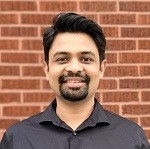 Rutwik Shah, MD
Rutwik Shah, MD
Director, Data and Clinical Product Management
Kaliber Labs
San Francisco, USA
Rutwik Shah is a healthtech leader developing real-time AI and analytics products for use in Orthopedics He works with a team of clinicians, engineers and ML researchers, building and validating digital solutions for use in the the OR. Prior to this, Dr. Shah drove AI product development at premier academic medical centers such as Mass General Brigham and UCSF. His key interests are in multimodal machine learning, human AI interaction and applications of collective intelligence.
 Peter Shull, PhD
Peter Shull, PhD
Department of Mechanical Engineering
Shanghai Jiao Tong University
Shanghai, China
Peter Shull is a Professor at Shanghai Jiao Tong University in the mechanical engineering department, where he leads the Wearable Systems Lab. His focus is on developing wearable systems to explore principles of human movement and movement modification by combining biomechanics and haptics principles to create unique sensors, real-time models, sensor fusion and artificial intelligence algorithms, and novel feedback paradigms. He has performed pioneering research involving wearable systems, human computer interaction, hand gesture recognition, and real-time movement sensing and feedback to improve human health and performance across an array of medical and sports applications.
 Daniel Ting, MD, PhD
Daniel Ting, MD, PhD
Head, AI and Digital Innovation, Singapore National Eye Center
Duke-NUS Medical School
Singapore
Dr. Ting started his vitreo-fellowship training as an Associate Consultant in the Singapore National Eye Centre. In 2017, he was chosen to be the 2017 US-ASEAN Fulbright Scholar, representing Singapore to visit Johns Hopkins University (JHU) School of Medicine and Applied Physics Laboratory to deepen his understanding on the use of artificial intelligence, big data analytics and telemedicine in the field of Ophthalmology.
 John B. Torous, MD
John B. Torous, MD
Beth Israel Deaconess Medical Center
Harvard Medical School
MA, USA
Dr. Torous is a board certified psychiatrist with a background in electrical engineering and computer sciences and enjoys exploring digital mental health. Dr. Torous is active in investigating the potential of mobile mental health technologies for psychiatry, developing smartphone tools for clinical research, leading clinical studies of smartphone apps for diverse mental illnesses and publishing on the research, ethical and patient perspectives of digital psychiatry.
 Katarzyna Wac, PhD
Katarzyna Wac, PhD
Professor of Computer Science
University of Geneva, Quality of Life Technologies Lab
Geneva, Switzerland
Prof. Wac established the QoL Lab in 2010. The Lab aims to responsibly leverage daily life data sources to improve the quality of life of all individuals. The QoL lab's research interests include the fundamental and algorithmic problems, as well as the human-centric challenges related to the assessment and improvement of human behavior, well-being, health, disease self-management, and quality of life as it unfolds naturally over time and in context. Her most recent research projects focus on the design of digital biomarkers for sexual health and is conducted in collaboration with Stanford University.
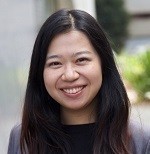 Zoie S. Y. Wilkins-Wong, PhD
Zoie S. Y. Wilkins-Wong, PhD
St. Luke's International University
Tokyo, Japan
Zoie S.Y. Wilkins-Wong is an Associate Professor at St. Luke’s International University (Tokyo, Japan). Specialized in digital health innovation, Dr. Wong’s research expertise is in Artificial Intelligence for Patient Safety Improvement, Health Data Analytics, and Infectious Disease Modelling and Visualization. She has been actively involved in collaborative research at the interface between informaticians, computer scientists, statisticians, epidemiologists, practitioners and policy makers investigating a range of challenging problems in health innovation. Dr. Wong currently serves on the Roster of Experts for the World Health Organization (WHO) Digital Health Technical Advisory Group (DHTAG) and as a global member of International Medical Informatics Association (IMIA) Technology Assessment and Quality Development in Health Informatics Working Group (TAQD WG).
 Guang Yang, PhD
Guang Yang, PhD
Associate Professor, Department of Bioengineering and I-X
Imperial College London
London, UK
Dr. Guang Yang is an Associate Professor (Senior Lecturer) in the Bioengineering Department and Imperial-X at Imperial College London. He holds a UKRI Future Leaders Fellowship and serves as an Honorary Senior Lecturer in the School of Biomedical Engineering & Imaging Sciences at King's College London. His research group is dedicated to developing novel and translational techniques for imaging and biomedical data analysis. The group's focus encompasses research and development in data-driven fast imaging, data harmonization, data synthesis, federated learning, explainable AI, and AI in drug discovery. Currently, his work spans a wide range of clinical applications in cardiovascular disease, lung disease, and oncology. For more information about Yang’s Lab, visit: https://www.yanglab.fyi/
Founding Editors and Scientific Advisors
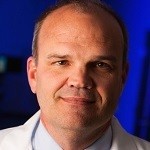 Steven R. Steinhubl, MD
Steven R. Steinhubl, MD
Scripps Research Translational Institute
CA, USA
Steve Steinhubl's research activities have covered a broad range of topics in cardiology, with a primary early focus on trials of novel antithrombotic therapies for the treatment and prevention of cardiovascular disease, and more recently on the application of an integrated systems-based approach to the optimal identification, communication and treatment of an individual's risk for various manifestations of cardiovascular disease. He has been principal investigator or helped lead over a dozen large-scale, international randomized trials.
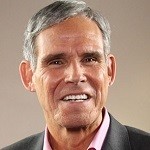 Eric Topol, MD
Eric Topol, MD
Scripps Research Translational Institute
CA, USA
Eric Topol is a practicing cardiologist at Scripps in La Jolla, California, and is widely credited for Cleveland Clinic's status as the leading center for heart care. Dr. Topol leads the flagship NIH supported Scripps Research Translational Institute and is a co-Founder of the West Wireless Health Institute. His research focus is on individualized medicine, using the genome and digital technologies to understand each person at the biologic, physiologic granular level to determine appropriate therapies and prevention. He has pioneered the development of many medications that are routinely used in medical practice including t-PA, Plavix, Angiomax and ReoPro and was the first physician to raise safety concerns on Vioxx.
News and Views Editors
 Stephen Gilbert, PhD
Stephen Gilbert, PhD
Professor of Medical Device Regulatory Science
Else Kröner Fresenius Center for Digital Health, Dresden University of Technology
Dresden, Germany
Professor Gilbert worked in MedTech and Digital Heath roles in industry for 5 years, before returning to academia in 2022 in Dresden, Germany, where he teaches and conducts research. His research goals focus on the advancement of regulatory science in digital medicine and AI-enabled medical devices. Stephen believes that innovative digital approaches in healthcare must be accompanied by innovative oversight approaches to ensure speed to market, to maximise the access of patients to life saving treatments while at the same time ensuring safety on market.
 Dylan Powell, PhD
Dylan Powell, PhD
Assistant Professor (Lecturer) Public Health & Innovation
Faculty of Health Sciences & Sport, University of Stirling
Stirling, Scotland
Dylan Powell is an Assistant Professor (Lecturer) in Public Health & Innovation at the University of Stirling within the faculty of Health Sciences & Sport. Dylan’s professional background as a clinician (Physiotherapist) and researcher has spanned the NHS, academia, professional sport, and within industry. His PhD in Computer Science explored the use of wearables and digital biomarkers in neurological conditions including Sports-Related Concussion. Dylan was previously a researcher and knowledge sharing lead for the UK Deloitte Clinical Network.
Advisory Editor
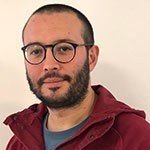
Lorenzo Righetto, PhD
Lorenzo studied Environmental Engineering at Politecnico di Milano, but was then involved in research in infectious diseases modelling during his PhD at EPFL, in Andrea Rinaldo’s group. He was also a postdoc at Politecnico di Milano (with Marino Gatto and Renato Casagrandi) and Human Technopole (with Fabio Pammolli), where he also worked more broadly in areas related to data science and healthcare, with a focus on pharmaceutical R&D. He joined Nature Communications as their digital medicine editor in January 2020 and has taken the same role at Nature Medicine, starting in December 2022
Social Media Editor
 Rob Argent, PhD
Rob Argent, PhD
RCSI University of Medicine and Health Sciences
Dublin, Ireland
Rob Argent is a Lecturer in Digital & Connected Health at RCSI University of Medicine and Health Sciences in Dublin, Ireland. He comes from a clinical background as a Physiotherapist and his primary research area is in patient facing digital health applications. Most of his work centres around development and evaluation of wearable devices for digital endpoints or digital therapeutics in rehabilitation, this includes real-world validation and user evaluations of digital health systems. He has worked as part of several European Connected Health networks and worked alongside a number of industry collaborators.
Editorial Board Members
Karthik Adapa, University of North Carolina at Chapel Hill, Chapel Hill, NC, USA
Rima Arnaout, University of California, San Francisco, CA, USA
Rong-Min Baek, Seoul National University, Seoul, South Korea
Pardis Biglarbeigi, University of Dundee, Dundee, Scotland, UK
Raymond Bond, Ulster University, Ulster, United Kingdom
Varun Buch, Microsoft, CA, USA
Yvonne Chan, Unaffiliated, NY, USA
Chun-Wang Chau, The University of Hong Kong, Hong Kong
George DeCherney, University of North Carolina, Chapel Hill, NC, USA
Maarten De Vos, KU Leuven, Leuven, Belgium
Patrick Desgranges, Scripps Health, CA, USA
Dewar Darren Finlay, Ulster University, Belfast, Northern Ireland, UK
Sara Gerke, Dipl.-Jur. Univ., M.A., Penn State Dickinson Law, Carlisle, PA, USA
Bo Gong, University of British Columbia, Vancouver, Canada
Pietro Hiram Guzzi, Magna Graecia University, Catanzaro, Italy
Dean Ho,The Institute for Digital Medicine (WisDM); The N.1 Institute for Health (N.1); and Department of Biomedical Engineering, National University of Singapore, Singapore
Sabeena Jalal, University of British Columbia, Vancouver, Canada
Kwang-il Kim, Seoul National University, Seoul, South Korea
Santosh Kumar, The University of Memphis, TN, USA
Kris Laukens, University of Antwerp, Antwerp, Belgium
Ari Lightman, Carnegie Mellon University, PA, USA
Gilbert Yong San Lim, SingHealth, Singapore
Hongfang Liu, Mayo Clinic, MN, USA
Nan Liu, Duke-NUS Medical School, National University of Singapore, Singapore
Jayson S Marwaha, Harvard Medical School, Boston, MA, USA
Lara Mangravite, Sage Bionetworks, WA, USA
Valentina Mantua, US Food and Drug Administration, Silver Springs, MD, USA
Donna Spruijt-Metz, University of Southern California, CA, USA
Veena Misra, North Carolina State University, NC, USA
Andrew R. J. Mitchell, Oxford University Hospital and Jersey General Hospital, Jersey, UK
Mirja Mittermaier, Charité - Universitätsmedizin Berlin, Berlin, Germany
Esmaeil Nadimi, University of Southern Denmark, Odense, DK
Camille Nebeker, University of California, CA, USA
Jeffery Olgin, University of California San Francisco School of Medicine, CA, USA
Andrey Ostrovsky, Children's National Medical Center, Washington D.C., USA
Lav Parshottambhai Patel, Office of the Chief Research Information at University of Kansas Medical Center, KS, USA
Niels Peek, University of Manchester, Manchester, United Kingdom
Sanjay Purkayastha, Imperial College, London, London, UK
Giorgio Quer, Scripps Research Translational Institute, CA, USA
Emma Rich, University of Bath, Bath, UK
Hojjat Salmasian, Childrens Hospital of Philadelphia, PA, USA
Emre Sezgin, Ohio State University, OH, USA
Md Mobashir Hasan Shandhi, Duke University, Durham, NC, USA
Stanley Y. Shaw, Harvard Medical School, MA, USA
Vivek Shetty, University of California Los Angeles, CA, USA
Dimitris Spathis, Nokia Bell Labs & University of Cambridge, UK
Brennan Spiegel, Cedars-Sinai Medical Center, CA, USA
Zachary H Strasser, Harvard Medical School, MA, USA
Kaushik P Venkatesh, Harvard Medical School, MA, USA
Joseph Wang, University of California San Diego, CA, USA
Ryan Van Wert, Stanford University, CA, USA
Robyn Whittaker, University of Auckland, Auckland, New Zealand
Kavishwar Wagholikar, Massachusetts General Hospital, Harvard Medical School, Boston, USA
Brenda K. Wiederhold, Virtual Reality Medical Center, CA, USA
Albert Chih-Chieh Yang, National Yang Ming Chiao Tung University, Taipei, Taiwan
Zhichao Zhang, Apple Inc., California, USA
Karen Zhou, Northeastern University, MA, USA
Interested in joining the journal team?
If you are interested in joining the journal as an Editorial Board Member or Associate Editor, please complete this Google form. Associate Editors are part of the editorial team that handle manuscripts, while Editorial Board Members are regular reviewers and are consulted for ad hoc advice. We will contact you if your expertise meets the needs of the journal.
Nature Portfolio journals are committed to promoting practices that support diversity, equity and inclusion in science communication and publishing, and we strongly encourage gender, race, ethnic, geographic, career stage and other diversity in our journal teams. Our in-house staff will use your information only for the purposes of identifying new editorial team or board members. Please contact the journal by email if you would like to remove your information from these records.
Please note that we are not able to respond to all applicants.

